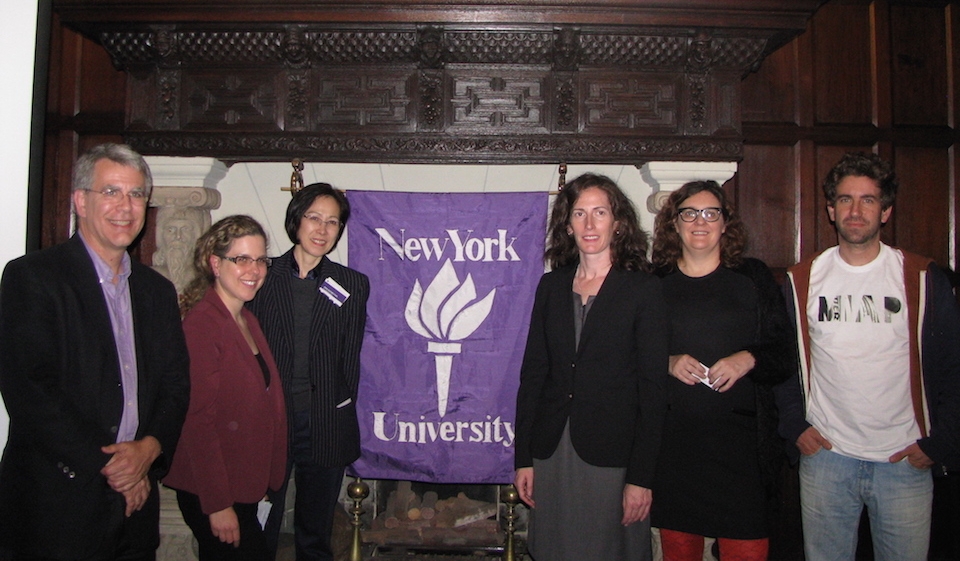Founded in 2008 by NYU professor Mona Jimenez for her work on-going work in Ghana, APEX allows for the ongoing exchange of ideas, knowledge, technology, and work among media archivists internationally. In May 2009, Dan Streible organized a similar team of 14 experts who volunteered their time to work alongside Museo del Cine archivists in the week preceding the International Federation of Film Archivists congress in Buenos Aires. This 2015 exchange was a larger undertaking, co-led by graduating MIAP students Lorena Ramírez-López and Allie Whalen, who planned the workflows with Félix-Didier and her Museo colleague Andrés Levinson.
In addition to the group at TV Pública, three APEX teams worked on three film collections: the Argentine Navy collection of 16mm and 35mm prints dating from the 1930s through 1960s; the pre-1950 nitrate collection; and the noted Manuel Peña Rodríguez Collection of world cinema. APEX members worked alongside Museo staff in inspecting, repairing, and cataloging a fascinating array of films.
For the first time, APEX opened applications to working professionals beyond NYU. Our volunteers included colleagues from our two sister programs, UCLA Moving Image Archive Studies and the Selznick School of Film Preservation in Rochester – the first time all three U.S. media preservation programs collaborated. Others came from the University of South Carolina Moving Image Research Collections, as well as Chicago’s Media Burn Independent Video Archive, Biblioteca Nacional de Chile, and private-sector companies Gotika, Media Matters LLC, and Preserving the Past.
Also on the Buenos Aires team were leaders of the previous two exchanges, MIAP graduatesJuana Suárez and Pamela Vizner. Based respectively in Colombia and Chile, they have now formed their own audiovisual media consultancy, Second Run Media Preservation.
The colloquium finale, “Archives and Audiovisual Heritage in Latin America,” convened at the NYU Buenos Aires Academic Center, attracting more than 70 attendees (the seating capacity). In addition to APEX groups presenting the results of their work, other speakers came from Cinemateca Boliviana, the University of Buenos Aires, Cinecolor Digital, Universidad Católica del Uruguay, Archivo Nacional de la Imagen in Montevideo, and Museos de Arte in Bahía Blanca, Argentina.
Post script: At the suggestion of the dean’s office, APEX highlights will be presented at the NYU Tisch School of the Arts “Day of Community,” October 2. Carolina Gil and Jonathan Farbowitz, who have volunteered to co-lead an APEX 2016, will report on the Buenos Aires exchange. Joining them will be new MIAP student Julio Cabrio – who participated in APEX Montevideo while working as an archivist at Universidad de La República in Uruguay.
